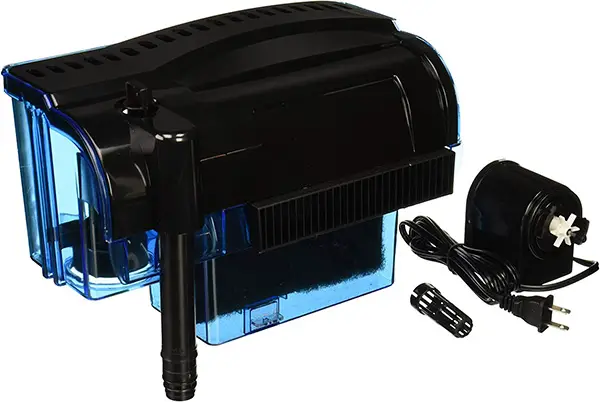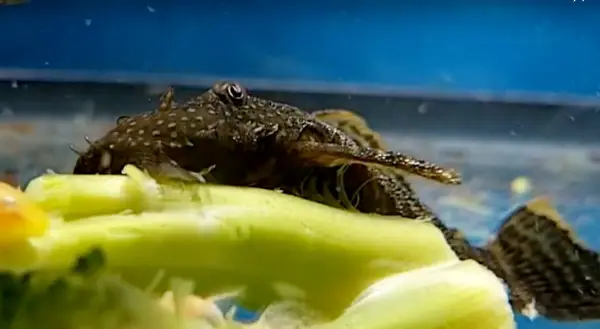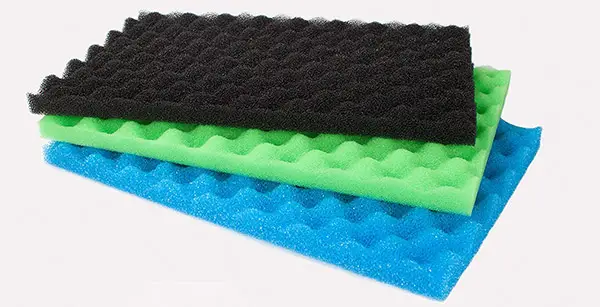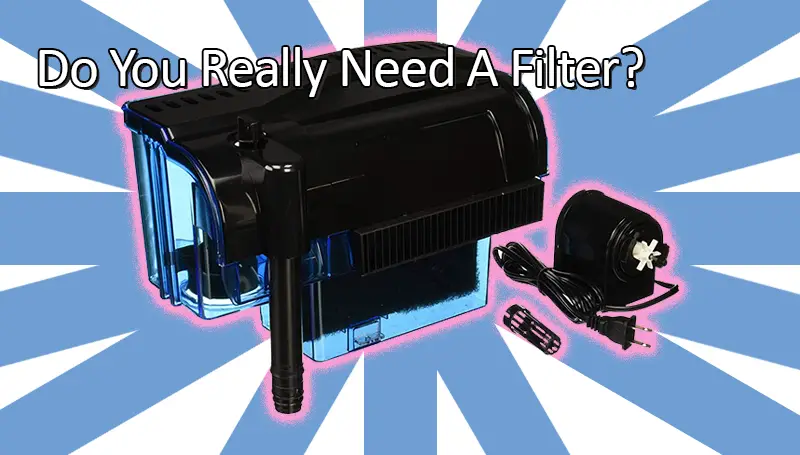Do you really need a filter in your fish tank? I love this question. Mainly because it really busts open the topic of aquarium filtration, especially biological filtration! Asking whether an aquarium needs a filter or not provides an opportunity to lay down some solid foundations.
Aquarium Filtration Basics – How Do Fish Tank Filters Work?
Mechanical, biological, and chemical—these are the categories we divide filtration into as a way of simplifying the process.
A good aquarium filter starts with mechanical filtration. This means that the first type of filter media the dirty water hits is intended to capture large waste particles. Next, comes biological; this is where the ammonia your fish produce is processed by beneficial bacteria into, first, nitrite, and then, ultimately, nitrate.

What about chemical, you might ask. Well, what about it indeed. Generally, in my experience, chemical filtration is not necessary.
If you have a piece of driftwood (sometimes known as bog wood) in your fish tank leaching tannins and thereby turning the water brown, then chemical filtration can help you—activated carbon will “capture” the tannins and help keep the water clear looking.
But because chemical filtration pulls unwanted elements out of the water by binding them, this means that eventually the carbon, or other media, loses its capacity to bind. Although, “recharging” chemical media can often alleviate this.
So, unless you have something particular you’re trying to pull out of your water, you can safely ignore chemical filtration.
Sounds Like We Do Need Filters, Otherwise Ammonia Would Kill Our Fish?
Yep, it is true that without biological filtration ammonia would quickly build up and, sadly, kill your fish. So, therefore, you must have an aquarium filter?

Well, not exactly!
To understand why you might not need a filter, we have to think about the bacteria colonies used to convert dangerous ammonia into mildly troublesome nitrate.
The Search For Surface Area!
The ammonia-eating bacteria we favor likes to cling to surfaces. So, the more surface area your filter media has, the more beneficial bacteria it can house.

But, don’t forget that beneficial bacteria will cling to any surface. It’ll be on your glass, your rocks, your decor, etc. So, if you had a very under-stocked aquarium, it could be that you don’t necessarily need a filter. There’s a small chance that the surface area in your aquarium without a filter is enough to handle the waste produced by your fish.
Gravel… Sand?
Speaking of surface area, your aquarium’s substrate—whether it’s gravel or sand—can provide a large surface area for bacteria to colonize. While, a bare bottom tank has a much reduced capacity for biological filtration.
Why Do I Need A Filter If My Gravel Houses Bacteria?
There’s a key difference between a bed of gravel or sand and an aquarium filter. And that difference is motion! Aquarium filters use either an air pump or their own motors to drive water across filter media. Therefore, the bacteria in a filter has access to more water, more quickly than a static bed of substrate.
Don’t Forget About Aeration!
If you do decide to run an aquarium without a filter, remember that you will still need to aerate the water. This can be achieved by agitating the water’s surface via an air pump or a water pump.
Plants Help!
A word of advice for those ambitious enough to try a filter-free aquarium: get some plants.

Undemanding, fast growing plants are a fantastic match for a filter-free aquarium. This is because as the plants grow they will consume at least a portion of the nasty nitrogen waste compounds—i.e. ammonia, nitrite, and nitrate.
Water Change, Water Change, Water Change!
Running a setup without a filter can be a risky business—waste can build up quickly. Therefore, I recommend keeping up with regular water changes as a way of dealing with that waste.
Conclusion
So, can you keep a fish tank without a filter? Sure, it’s possible. However, I wouldn’t recommend it; why make things hard on yourself? Just grab any decent hang on the back filter, throw some media in it and off you go!
If you’re looking for a recommendation on what the best hang on back filters are, check out this article.


